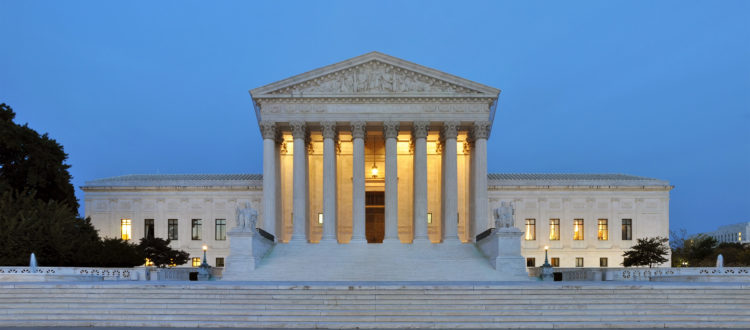Should The Public Fund Religious Schools?
The upcoming Supreme Court case of Espinoza v. Montana Department of Revenue
In January, the United States Supreme Court will hear a case that could erode the separation of church and state and allow for state governments to increase support for religious private schools using public funding programs.
The Montana State Legislature in 2015 enacted a law creating a tax credit for citizens and businesses who donate to fund scholarships for K-12 students in private schools. The credit is equal to the amount of the donation up to $150 per person or $300 per couple, and so incentivizes Montanas to donate to support students in the state. This type of school choice program which encourages students to attend private schools is controversial in its own right, but Montana’s law had a particular problem: it did not explicitly exclude scholarship recipients from attending religious private schools, creating a pathway for public funding to religious institutions.
Oyez: Espinoza v. Montana Department of Revenue
Finding the tax credit program a threat to the separation of church and state, the Montana Department of Revenue issued an administrative rule prohibiting scholarships from being used at religious schools, citing the state’s Constitution which prohibits “any direct or indirect appropriation or payment from any public fund…to aid any church, school, academy…controlled in whole or in part by any church.”
Kendra Espinoza wanted to use the new scholarship program to fund her two daughters’ education at Stillwater Christian School in Kalispell. When the Department of Revenue prohibited her from using the scholarships at a religious school, Espinoza and other mothers filed a lawsuit challenging the prohibition. After initially winning at the trial court level, the Montana Supreme Court ruled against Espinoza on appeal, affirming that the prohibition on religious schools was valid and necessary, or the entire program would be unconstitutional.
Espinoza appealed to the U.S. Supreme Court, and in June the Court announced that they would hear the case in January 2020.
Montana’s Constitution is an example of strong state-level protections guaranteeing the separation of church and state, protections which go beyond the First Amendment’s Establishment Clause (“Congress shall make no law respecting an establishment of religion…”). At the Supreme Court, Justices will decide whether the First Amendment’s Free Exercise clause (“…or prohibiting the free exercise thereof”) prohibits states like Montana from enacting these protections.
In an amicus curiae brief, organizations including Americans United for Separation of Church and State, the ACLU, the ADL, Interfaith Alliance, the National Council of Jewish Women, and the Reconstructionist and Reform Judaism movements are urging the Court to affirm the decision of the Montana Supreme Court and uphold the state’s prohibition from using scholarships at religious schools.
Because we believe that the public, through any direct or indirect means, should not be required to fund religious education, we support Montana’s prohibition. Their state level protections of secular government ought to be encouraged, not struck down, by the Supreme Court.

